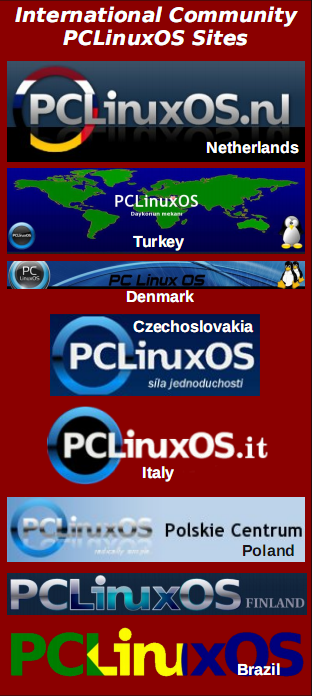| Previous
Page |
PCLinuxOS
Magazine |
PCLinuxOS |
Article List |
Disclaimer |
Next Page |
From The Chief Editor's Desk |
|
Meltdown and Spectre. Two words that have brought a chill to the spine of computer users everywhere. Linus Torvalds has railed mercilessly on Intel's proposed microcode patch for the vulnerabilities, calling the patch crap. The "patch" and workaround these issues will cause a significant speed hit to the Linux kernel. No operating system is immune from them. In case you haven't kept up with the latest and most major computing drama, Meltdown and Spectre are vulnerabilities that could allow malicious code to intercept passwords and other sensitive data, or even take control over a user's computer. What's worse is that these vulnerabilities were discovered at the CPU level, in the actual CPUs themselves. The problem goes back to some poor decision 20 years ago that has been carried forward ever since. Not only are virtually all of Intel's x86 chips affected, but also AMD's x86 chips and virtually all ARM chips. The patch(es) attempt to plug the hole by avoiding code that uses those particular CPU calls.  In short, things are a royal mess. The patches on some operating systems (namely Windows) has left some computer users unable to boot into their computers, necessitating yet another patch. Linux users are more fortunate, since (at the time I'm writing this) Linus Torvalds has released the 4.15 Linux kernel. The 4.15 kernel is said to contain Linus's full patch for the two miscreant vulnerabilities. Under PCLinuxOS, Texstar was quick to release updated kernels with the patches. Those kernel versions are 4.4.110 (LTS), 4.9.75, and 4.14.12 (or higher). All other kernels should be considered insecure/unsecure. If you have not yet updated your Linux kernel to one of these versions, you should do so posthaste. If you are clinging to some other version of the Linux kernel for hardware compatibility issues, you owe it to yourself to either find a workaround, or to update your hardware to items that don't belong in a museum. Which bring me to yet another random thought: (some) Linux users are a curious, odd lot. There are users who use the most ancient, out-of-date, obsolete hardware they can get away with. Sure, there is some "joy" in keeping these items out of the landfill. Sure, there is some "joy" in keeping these items running. But I've seen evidence of more than that. It seems like some users are personally attached to these ancient items in the weirdest and strangest ways. It's almost as if these obsolete items are their first born, and are just as reluctant to surrender them to even moderately more modern hardware as they are to surrender their first born. I mean we're talking about such antiquities as 5x8 dot matrix printers, daisy wheel printers, and other items from that period in computing history, like keyboards and mice. I'm actually quite surprised that they can even find replacement parts or ink ribbons for them. While the rest of us have moved on and embraced more modern hardware, they cling to these relics in a most surreal way, as if they are long lost lovers. At some point, you have to let the old technologies go and embrace newer, better, more capable technologies. Failure to do so risks being left behind. I would think that if anyone would or should embrace newer technologies, it would be Linux users. For so long, we were the forgotten users. For so long, hardware manufacturers overlooked Linux users by never producing Linux drivers for their products. More recent times has seen that situation change. Many hardware manufacturers now produce Linux drivers for their hardware. Tux, the Linux mascot, now appears alongside the Windows and Mac logos when listing product support. Perhaps it is this history that causes a small group of Linux users to cling to their obsolete hardware. But we can't live in the past. We must look forward. It's nowhere near as common today to have to "roll your own" device drivers for hardware. In just the 10 years that I've run Linux, I've noticed that there is increasingly less reliance on the "roll your own" device drivers, and more reliance on drivers supplied by the hardware manufacturers themselves. If hardware manufacturers start/continue to view Linux users as a viable and profitable market, then purchasing their hardware will encourage them to maintain or increase support for Linux. Money talks, and everything else walks. Similarly, avoiding the use of hardware from manufacturers who don't yet support Linux also speaks loudly. All of these companies are in business to make money, and few (more likely none) of them want to see potential sales/profit going to their competitors who do support Linux. Until next month, I bid you peace, happiness, serenity and prosperity. |


